Fall from Grace
The Nobel Peace Prize winner, Aung San Suu, of Myanmar has in the past been compared to Nelson Mandela and Mahatma Gandhi for her resistance to oppression and defense human rights and human dignity. For decades, she was persecuted by a brutal military dictatorship that ruled over this country, formerly known as Burma and located in south-east Asia, which was once a British colony. Films and documentaries portrayed her august struggle, as close to a saint as is possible in the modern world.
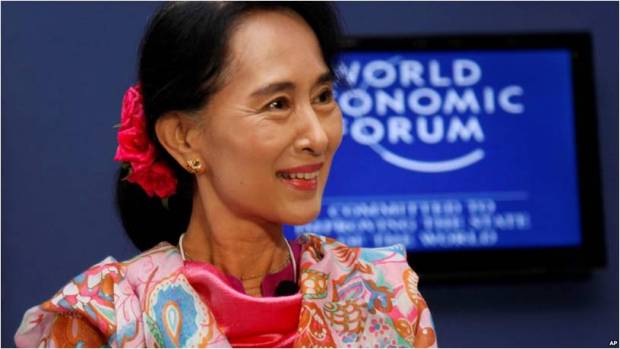
After being denied political power, the military finally gave in after she overwhelmingly won a popular election in 2015 and although she cannot be president due to her holding a foreign passport, she essentially runs the country from the sidelines. There are severe limitations on her maneuverability imposed by the military (some say this restricts her actions in the present crisis). Her ascension after years of painful hardship was universally applauded.
Her image has undergone a radical change, however, with hundreds of thousands of people signing on-line petitions to have her Nobel Prize revoked, as well a very public letter of admonishment from another Nobel Peace Prize winner, Archbishop Desmond Tutu of South Africa. This metamorphous is based on the plight of the Rohingya people, a historically persecuted Muslim minority who over the last month have been victims of an army campaign to expel them from their homes. The UN estimates that up to now more than 400,000 have fled their homes, and are stuck in limbo, stranded in squalid conditions on the border area between Myanmar and Bangladesh. It has been declared a humanitarian disaster and there are real fears of a devastating cholera outbreak.
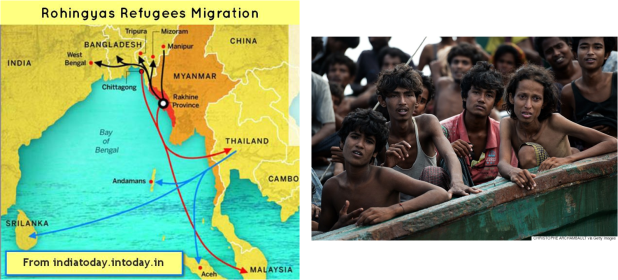
Instead of showing sympathy for these victims of violence, Aung San Suu has blamed their suffering on the work of “Muslim Terrorists”, completely exculpating the Myanmar military and showing absolutely no sympathy at all for these people’s turmoil. It is quite extraordinary for some so revered to suddenly be so reviled. The world awaits some kind of pronouncement from her that will hopefully serve to assuage some of the acute disappointment she has generated among her former admirers and restore some of her besmirched reputation.
Confronting History
On August 13, a man participating in a right wing demonstration rammed a car into a group of protesters demanding the removal of a statue of Robert E. Lee, in Charlottesville, the state of Virginia. Lee was the commander of the rebel army that tried to secede from the United States in 1861 and resulted in the Civil War, the US’s bloodiest conflict to date. One person was killed, and the incident, already a viscous cauldron in which contrasting visions of history brew , was exacerbated by President Trump’s equating the violence of the neo-Nazis with those agitating for the withdrawal of Lee’s statue.
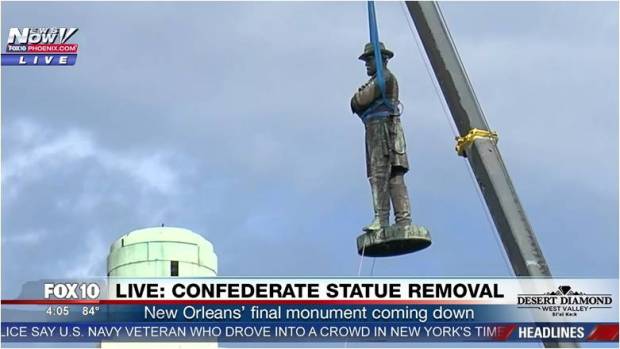
In New York at the beginning of September, the mayor, Bill Deblasio, flouted the idea of a Christopher Columbus Statue, that occupies the center of the eponymous circle off the west end of Central Park, be removed. Columbus’ contribution to the genocide of America’s indigenous peoples was cited as the principal reason.
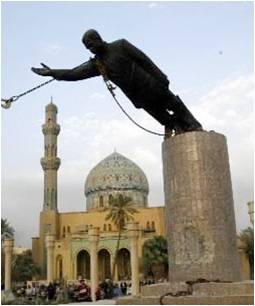
Saddam Hussein’s statue being torn down in 2003
Both incidents reflect the thorny issue of wildly different interpretations of history. Those who want to see the dismantling of statues allege they glorify soldiers who fought for the disintegration of the United States and the maintenance of slavery. Defenders of Lee say that he was a decent man and to condemn all the descendents of southerners as essentially evil is based on the hubris of the victor and deeply insulting.
On Columbus, many would argue that his “discovery” changed the world and propelled Europe to a 500-year era of dominance, which, according to them, was on the whole a good thing. Many others would argue that the despicable manner in which Europeans treated America’s native inhabitants (the cruelty of Columbus’ men on Hispaniola is truly mortifying) and the genocide this engendered forever sullies Columbus and what he stands for.
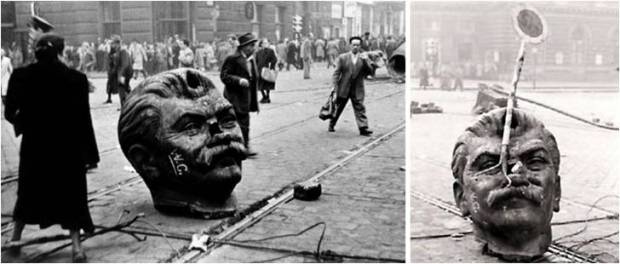
Stalin statue vandalized after the fall of Communism
The sorry old cliché still rings true. History means different things to different people, often diametrically opposite. Externally, this results in armed conflict; internally, civil war. What is sad about the Charlottesville incident is that the wounds gouged open 150 years ago are still festering with acrid infection in the US. And with Europe’s and the west’s hegemony being strongly challenged globally, what Columbus really means will continue to be debated.
Why not just put the statues in museums?
Tired of Tourists
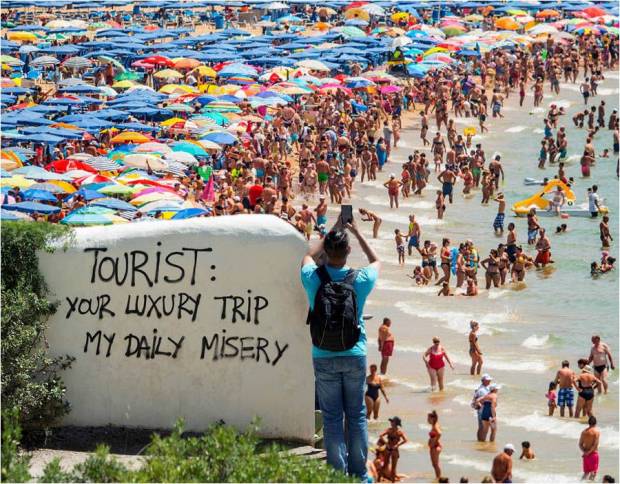
Europeans are starting to get fed up of having their cities invaded by outsiders there to appreciate the glorious aesthetic treasures so many European cities possess. Traffic jams of people can result in places like Prague or Athens, and for the locals, trying to live a normal life with all the strains that entails, this human invasion can manacle their freedom to go about their daily business.
For visitors, these plaintive cries ring extremely hollow. Their sojourns to these countries are essential to their economies. What can European countries, with their high labor costs and strict regulations, really produce anyway? If they stopped coming, the economies would collapse and of course the people would suffer. If in this globalized world, Europe is to become a kind of Disneyland of antiquity, then that’s just the way it is.
Natives and outsiders once again don’t see eye to eye.